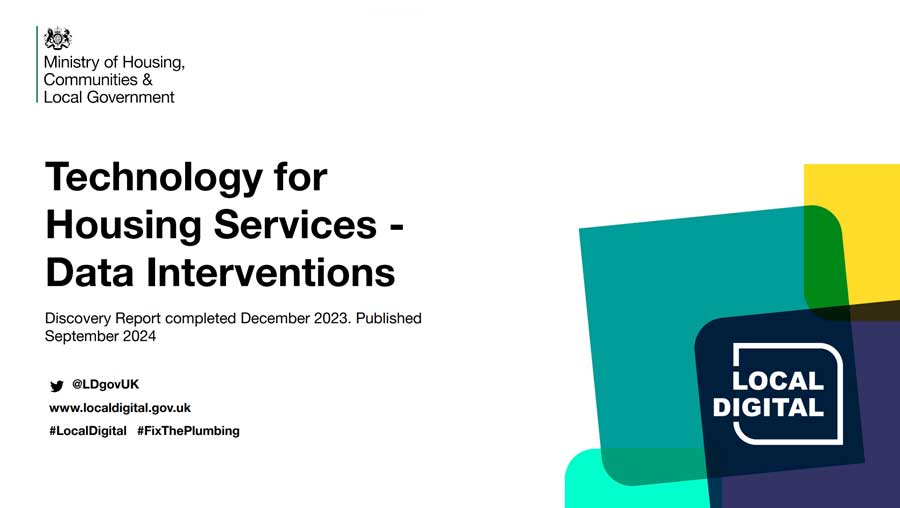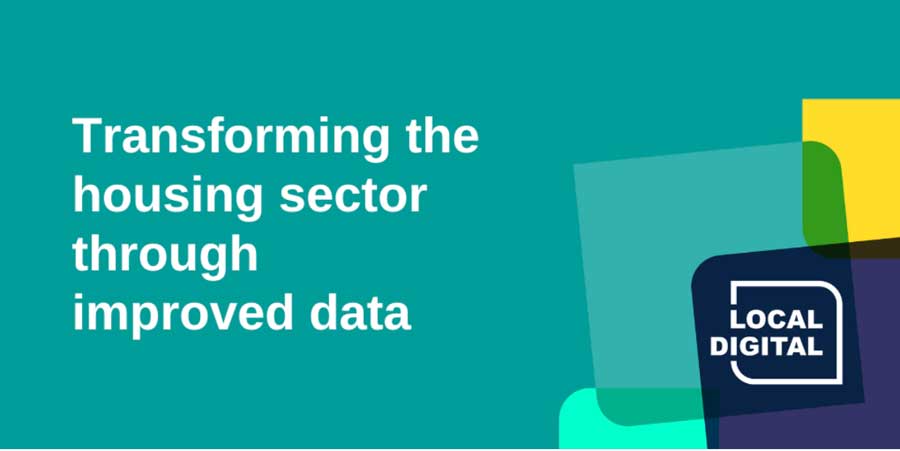Image: Istock
It’s time for data standards
Improving the quality of data in the social housing sector could save up to a staggering £400 million per year

INNOVATION & IMPROVEMENT

Andrew van Doorn OBE
CEO, HACT

Andrew van Doorn
CEO, HACT
Issue 75| December 2024
In September, the Ministry of Housing, Communities and Local Government (MHCLG) published its discovery report into the quality of data in social housing. Focusing on two areas of social housing – repairs and allocations – the research estimates that poor-quality data costs the sector £400 million per year.
That is £400 million that could be spent on building new homes, on regenerating run-down estates or improving the energy efficiency of the coldest homes. And it’s not a one-off cost. That’s £400 million each year, every year, that we are wasting because of poor-quality data.
The MHCLG report identified four issues affecting social housing organisations, which won’t come as a surprise to many of you:
- Teams storing their data in siloed systems that don’t talk to each other (neither the people nor the systems)
- Errors that occur when people input data manually (and often using their own data definitions)
- Data that is duplicated, inconsistently entered and incomplete (we have all heard about residents who are recorded as being 120 years old or having four children, despite only having been recorded as being born 10 years ago)
- Staff grappling with complex tasks without all the information they need to do their jobs effectively
“Lack of readily available data on properties’ construction and insulation materials for some landlords is increasing insurance costs.”
Renewed governmental focus
The MHCLG is not the only part of government that is interested in data. We’ve also been contacted by those working with the Department for Business, Energy and Industrial Strategy, who are also looking at property-based data standards.
And the latest sector risk profile from the Regulator of Social Housing repeatedly references the importance of data quality. This includes supporting understanding of investment needs for existing homes, as well as the potential implications of the government’s forthcoming review of the Decent Homes Standard.
The regulator also warns boards that they “must have assurance that decisions are underpinned by robust data that is appropriately managed”. Bearing in mind the hike in insurance premiums many housing associations have faced in 2024, the regulator advises that a “lack of readily available data on properties’ construction and insulation materials for some landlords is increasing insurance costs”.
All of this points to a renewed focus and concern about housing’s data. Leaders in housing should be concerned about the costs they are driving into their businesses through poor data. Then there are the potential regulatory failures in areas such as building safety. And also the lost opportunities to improve quality and customer experience through much-needed investment in homes and communities.
Data standards – again
The MHCLG has announced that, on the back of its discovery research, it is building a community to tackle the issue of data quality across the sector, including working with HACT and the Open Data Institute. Working alongside the MHCLG and its community of experts we will “collaborate to help test, refine and implement data standards”.
Data standards provide the answer to many of the issues that have been identified. They provide the foundation for organisations to have a “single version of the truth”. They reduce the costs of implementing new software (which MHCLG estimates at more than £100,000 every time new system software is implemented). They enable wider collaboration and innovation. And they will provide real efficiency savings.
For HACT, data standards are not new. We have worked with more than 120 organisations from across the sector to develop the UK Housing Data Standards. They are free of charge, downloadable from our website, and have already been implemented by housing associations of all shapes and sizes. We are working with sector partners and MHCLG to ensure that the UKHDS are up-to-date, relevant and as future-proofed as possible.
But we know that this is an area that confuses and perplexes people. It is a subject where many feel out of their depth, and where technical skills are not widespread or always valued. But it is time to grasp the nettle. To take the right steps forward. And we want to make it as easy as we can and support the sector’s implementation.
The data standards journey is an ongoing one, and with MHCLG focus and support, has a renewed focus and push. I encourage all housing associations to join us in this effort. Whether through participating in the MHCLG project or collaborating with HACT to test and refine new use cases, we need your involvement to ensure that these standards work for everyone.



